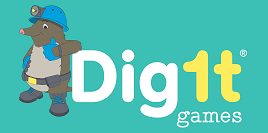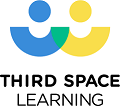
Leeds for Learning Annual 2019 Primary and Secondary Mathematics Conference and Exhibition
Event Dates and Prices
Friday 15th November 2019
8.00am – 3.30pm
![]()

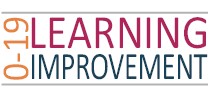
“Learning mathematics: What works?”
The 2019 Mathematics Conference will be a day of professional learning which senior leaders, subject leaders, lead practitioners, teachers and governors (from early years to secondary) cannot afford to miss. The day will be full of innovative opportunities to consider the best ways to support and challenge young people to behave like mathematicians through a well designed and implemented curriculum.
We are excited to welcome two keynote speakers; Mark McCourt, who is the UK’s leading expert on teaching for mastery approaches and Craig Barton, author of ‘How I wish I taught Maths’ and so much more! They will address the implications for all schools and settings of adopting or embedding a mastery model for teaching mathematics and examine the evidence about ‘what works’.
The Conference will also include a comprehensive programme of workshops which will be delivered by the West Yorkshire Maths Hub and experienced learning improvement consultants and these will provide practical ideas and opportunities to work collaboratively with practitioners from across the region. The workshops will range from supporting pedagogical content knowledge in ‘multiple representations for beginners’ to developing leadership by exploring the EEF guidance report in detail; with so much more in between!
All of this will take place amongst the excellent facilities of Elland Road Stadium, Leeds and will be hosted by Leeds City Council School Improvement Team, who have a proven track record of delivering high impact professional learning.
Alongside the Conference, a range of companies and organisations supplying to both Primary and Secondary Education will be displaying their products and services. This event is likely to be very popular and companies wishing to exhibit are urged to book their space as soon as possible. Please view the list of those exhibitors already participating and contact us should you be a Company wishing to take advantage of this excellent opportunity to promote your activity in this marketplace.
Leeds United Football Club, Elland Road, Leeds LS11 0ES
Delegates are requested to register using the ‘delegate registration’ button to the left of this page and to select ONE session in each of the three options. Workshops will be allocated on a first come, first served basis and, in the event of a workshop being full, delegates will be asked to choose alternatives.
The cost per Primary delegate is £195 for those from SLA Schools and £240 for those from non SLA and non Leeds schools. Additional full day delegate places from the same school is £100 SLA and £120 non SLA. The Leading Mathematics Training Package schools have one prepaid place and delegates will need to book their place in order to select their workshop choices.
Secondary Leading Learning Partnership (LLP) schools have one prepaid place at this event and will be charged at the discounted rate of £100 for all additional delegate places. Secondary non LLP and non Leeds schools will be charged £240 per delegate and £120 for all additional places from the same school.
Delegates registering before Friday 18th October 2019 will receive an additional Early Bird 10% discount on the first delegate place; £175.50 for SLA schools and £216 for non SLA and non Leeds schools.
Schools will be invoiced directly from Leeds City Council following registration on this site.
Workshops
The following workshops will be running and can be selected on the booking form.
1A. Improving Mathematics in Key Stages 2 and 3
Stephanie Kirk, West Yorkshire Maths Hub
A Look at the Guidance Report. This professional development opportunity takes a more detailed look at the EEF Guidance report “Improving Mathematics in Key Stages 2 and 3”. You will receive an overview of the 8 key recommendations that come through the report and what this could mean practically in Primary and Secondary schools.
Great maths teaching requires good content knowledge, but this is not sufficient. Great teachers also know the ways in which pupils learn mathematics and the difficulties they are likely to encounter, and how mathematics can be most effectively taught. This workshop aims to start to answer some of those questions , we will explore:
- What the evidence says about the use of manipulatives?
- Strategies to help children more effectively problem solve
- The importance of mathematical understanding
- What effective interventions inside a classroom might look like
- And a whole lot more
1B. Curriculum (KS3/4) Part 1 of a 2 hour session continued with Workshop 2B
Mark McCourt
Building further on the key note talk, Mark McCourt will work with delegates to look at the mastery model of schooling in more detail, exploring examples of what the model looks like in practice. The workshop will include practical advice and some exemplar lessons for the mathematics classroom. Delegates will have the opportunity to work together on some intriguing mathematical ideas and consider how their own mathematical content knowledge and mathematical pedagogical knowledge impact on a school’s readiness to move to a mastery approach.
1C. Intelligent Practice (KS2/3)
Craig Barton
Harnessing the power of intelligently varied sequences of examples and questions is Craig’s latest obsession. Here you will dive into why Craig believes the simple process of: Reflect, Expect, Check is one of the keys to learning. Then you will look at four different ways you can utilise the principles of variation theory is lessons, in the form of Practice, Rules, Demonstrations and Patterns, and how they can be applied to any topic in mathematics, and with any age of students. Be warned: this is a bit controversial!
1D. Multiple representations for beginners (Cross Phase)
Sarah Chamings
In order to deliver mathematics so that learning is both ‘durable and flexible’ (Soderstrom et al) we need to ensure that children really understand and are not just ‘performing’ mathematics. By using multiple representations in the mathematics classroom we, as educators, can provide children with the tools that they require to grasp a concept and not just a set of rules or algorithms. However, we might have only ever been exposed to the symbolic representations in our own school career, therefore creating a gap in our own pedagogical subject knowledge. This session will be chance to do some maths, to play with some representations and to begin to explore new ideas. The session is aimed at those who are new to using multiple representations in the classroom and will cover concepts from the National Curriculum for key stage 2 and 3, a useful self-assessment guide can be found here https://educationendowmentfoundation.org.uk/public/files/Presentations/Publications/Maths/5660_EEF_-_Maths_Guidance_RAG_v5.pdf
1E. ‘Mathematics the science of patterns’ - using pattern skills to close gaps and provide firm understanding of mathematical structures (Early Years)
Sarah Coltman & Refhet Akhtar (Early Years)
This workshop will focus on progression in pattern skills, supporting EY and Y1 teachers to close gaps in children’s learning and provide a secure scaffold for their next steps. Children enjoy making and exploring pattern; this workshop will provide a range of ideas to exploit this enjoyment as a hook for wider mathematical learning. It will extend specific vocabulary so children have precise language to describe their work, and can talk about the ‘unit of repeat’ or the ‘iteration’ and confidently discuss what they see. Ideas shared will support ‘generalising’ and discussion of similar patterns in different contexts. Work on pattern provides a firm foundation for work across different mathematical strands, including algebra– come and see how you can support your EY and Y1 teachers!
2A. Improving Mathematics in Key Stages 2 and 3
Stephanie Kirk, West Yorkshire Maths Hub
A Look at the Guidance Report. This professional development opportunity takes a more detailed look at the EEF Guidance report “Improving Mathematics in Key Stages 2 and 3”. You will receive an overview of the 8 key recommendations that come through the report and what this could mean practically in Primary and Secondary schools.
Great maths teaching requires good content knowledge, but this is not sufficient. Great teachers also know the ways in which pupils learn mathematics and the difficulties they are likely to encounter, and how mathematics can be most effectively taught. This workshop aims to start to answer some of those questions, we will explore:
- What the evidence says about the use of manipulatives?
- Strategies to help children more effectively problem solve
- The importance of mathematical understanding
- What effective interventions inside a classroom might look like
- And a whole lot more
2B. Curriculum (KS3/4) Part 2
Mark McCourt
Building further on the key note talk, Mark McCourt will work with delegates to look at the mastery model of schooling in more detail, exploring examples of what the model looks like in practice. The workshop will include practical advice and some exemplar lessons for the mathematics classroom. Delegates will have the opportunity to work together on some intriguing mathematical ideas and consider how their own mathematical content knowledge and mathematical pedagogical knowledge impact on a school’s readiness to move to a mastery approach.
2C. Intelligent Practice (KS2/3)
Craig Barton
Harnessing the power of intelligently varied sequences of examples and questions is Craig’s latest obsession. Here you will dive into why Craig believes the simple process of: Reflect, Expect, Check is one of the keys to learning. Then you will look at four different ways you can utilise the principles of variation theory is lessons, in the form of Practice, Rules, Demonstrations and Patterns, and how they can be applied to any topic in mathematics, and with any age of students. Be warned: this is a bit controversial!
2D. Multiple representations for beginners (Cross Phase)
Sarah Chamings
In order to deliver mathematics so that learning is both ‘durable and flexible’ (Soderstrom et al) we need to ensure that children really understand and are not just ‘performing’ mathematics. By using multiple representations in the mathematics classroom we, as educators, can provide children with the tools that they require to grasp a concept and not just a set of rules or algorithms. However, we might have only ever been exposed to the symbolic representations in our own school career, therefore creating a gap in our own pedagogical subject knowledge. This session will be chance to do some maths, to play with some representations and to begin to explore new ideas. The session is aimed at those who are new to using multiple representations in the classroom and will cover concepts from the National Curriculum for key stage 2 and 3, a useful self-assessment guide can be found here https://educationendowmentfoundation.org.uk/public/files/Presentations/Publications/Maths/5660_EEF_-_Maths_Guidance_RAG_v5.pdf
2E. ‘Mathematics the science of patterns’ - using pattern skills to close gaps and provide firm understanding of mathematical structures (Early Years)
Sarah Coltman & Refhet Akhtar (Early Years)
This workshop will focus on progression in pattern skills, supporting EY and Y1 teachers to close gaps in children’s learning and provide a secure scaffold for their next steps. Children enjoy making and exploring pattern; this workshop will provide a range of ideas to exploit this enjoyment as a hook for wider mathematical learning. It will extend specific vocabulary so children have precise language to describe their work, and can talk about the ‘unit of repeat’ or the ‘iteration’ and confidently discuss what they see. Ideas shared will support ‘generalising’ and discussion of similar patterns in different contexts. Work on pattern provides a firm foundation for work across different mathematical strands, including algebra– come and see how you can support your EY and Y1 teachers!
Event Speakers

Craig Barton
Craig is a Secondary Maths Advanced Skills Teacher from Thornleigh Salesian College, Bolton, in UK. He is the owner and creator of the highly successful www.mrbartonmaths.com website and blog, which offers free resources to teachers and students with the aim of making maths more fun and exciting for everyone. He is also the co-creator of www.diagnosticquestions.com, a formative assessment website, which aims to help students and teachers from all around the world to identify, understand and resolve key misconceptions, and currently has over 4 million answers and explanations. Craig is the Secondary Mathematics adviser for the Times Educational Supplement, the largest professional network of teachers in the world. He has been fortunate enough to run workshops and work with students and teachers all over the world. He is also the host of the Mr Barton Maths Podcast.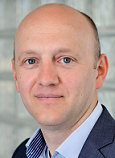
Mark McCourt
The UK’s leading expert on the mastery approach, Mark is a leading figure in mathematics education, and has led many large-scale government education initiatives, both in the UK and overseas. Mark was a Director at the National Centre for Excellence in the Teaching of Mathematics (NCETM) and has also been a school leader, an Advanced Skills Teacher, a school inspector and a teacher trainer. He founded and was Chairman of the Teacher Development Trust and he is the CEO of Complete Mathematics, the UK’s largest network of mathematics teachers. He has extensive experience of mathematics teaching and learning across all age and ability groups, having taught students from age 3 to PhD.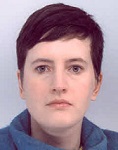
Sarah Chamings
Sarah Chamings is a Learning Improvement Consultant and is part of Leeds City Council’s Learning Improvement Team. Before this she has been an AST for mathematics, a head of mathematics in a large secondary school and a senior leader. Sarah currently works in a school improvement capacity for two local schools and still teaches whenever she can. She also delivers a wide range of professional development for teachers including for the NCETM and our Leading Learning Partnership



